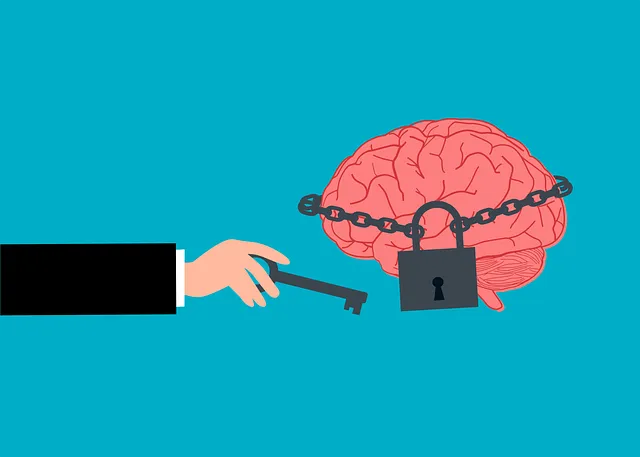Aurora Kaiser Permanente enhances mental health services through data-driven RFM metrics and proactive resilience-building exercises (RBFEs). Mental health professionals tailor interventions based on patient engagement, integrating mindfulness and empathy techniques to combat burnout. This approach, aligned with the organization's commitment to workforce well-being, improves patient satisfaction and job fulfillment, while a Mental Wellness Podcast Series shares valuable insights with a broader community.
“At Aurora Kaiser Permanente, the integration of RFM (Resilience, Flexibility, and Mastery) principles into mental health support has emerged as a game-changer. This article explores how RFM enhances resilience building among patients, with a practical guide tailored for mental health providers. From understanding RFM’s role to implementing effective exercises and sustaining resilience in the clinical setting, we equip professionals at Kaiser Permanente Aurora with tools to empower patients towards improved mental well-being.”
- Understanding RFM and Its Role in Mental Health Support at Kaiser Permanente Aurora
- Implementing Resilience-Building Exercises: A Step-by-Step Guide for Mental Health Providers
- Best Practices and Tips for Sustaining Resilience in the Clinical Setting
Understanding RFM and Its Role in Mental Health Support at Kaiser Permanente Aurora

At Kaiser Permanente Aurora, understanding RFM—Reach, Frequency, and Engagement in mental health services—is crucial for supporting the well-being of healthcare providers. This data-driven approach helps mental health professionals at Aurora Kaiser Permanente tailor interventions to improve access and engagement with mental health care. By analyzing how often and consistently patients engage with these services, Aurora Kaiser Permanente’s mental health providers can identify areas for improvement, ensuring that their offerings are both accessible and impactful.
Moreover, integrating mindfulness meditation and empathy-building strategies into the workflow is vital in preventing burnout among healthcare workers. These practices foster a sense of resilience, enhancing professionals’ ability to cope with the emotional demands of their roles. Additionally, incorporating burnout prevention strategies for healthcare providers aligns with Aurora Kaiser Permanente’s commitment to supporting its workforce’s mental health, ultimately improving patient care and job satisfaction.
Implementing Resilience-Building Exercises: A Step-by-Step Guide for Mental Health Providers

Implementing Resilience-Building Exercises: A Practical Guide for Mental Health Professionals at Aurora Kaiser Permanente
At Aurora Kaiser Permanente, mental health providers play a pivotal role in empowering individuals to navigate life’s challenges with resilience. Incorporating resilience-building exercises (RBFEs) into therapy sessions offers a structured yet adaptable framework to enhance clients’ coping mechanisms and overall mental wellness. This step-by-step guide aims to equip professionals with the tools to effectively integrate RBFEs, fostering a supportive environment that promotes healing and growth.
Begin by selecting evidence-based exercises tailored to individual needs, considering factors like age, cultural background, and specific mental health concerns. Educate clients on the benefits of these practices, fostering open communication. Next, create a safe and non-judgmental space where participants feel empowered to explore their emotions. Integrate exercises into sessions, offering guidance while encouraging self-reflection. Track progress over time, allowing for adjustments and celebrating successes in anxiety relief and depression prevention efforts. This approach not only enhances therapeutic outcomes but also contributes to the production of a comprehensive Mental Wellness Podcast Series, sharing insights that benefit a wider community.
Best Practices and Tips for Sustaining Resilience in the Clinical Setting

At Aurora Kaiser Permanente, mental health providers play a pivotal role in fostering resilience among their patients. To sustain and strengthen resilience in the clinical setting, best practices involve integrating Compassion Cultivation Practices into treatment plans. Encouraging patients to cultivate self-compassion, mindfulness, and empathy not only enhances their emotional well-being but also equips them with tools to navigate life’s challenges. Regular sessions focused on these practices can transform individuals from passive recipients of care to active participants in their mental health journeys.
Moreover, incorporating strategies from Public Awareness Campaigns Development can significantly contribute to building resilience within the community. Educating patients and the general public about stress management techniques, such as cognitive-behavioral therapy (CBT) and mindfulness meditation, empowers individuals to proactively address stress and adversity. By combining these evidence-based methods with compassionate care, mental health providers at Aurora Kaiser Permanente create an environment that nurtures resilience, enabling individuals to thrive despite life’s ups and downs.
The implementation of RFM (Resilience, Flexibility, and Mastery) exercises at Kaiser Permanente Aurora has shown significant potential in enhancing mental health support. By incorporating these strategies, mental health providers can empower individuals to build resilience, navigate challenges, and foster a sense of control over their well-being. This approach, coupled with best practices outlined in the guide, ensures that Aurora’s Kaiser Permanente continues to offer effective care, enabling clients to thrive both within and outside the clinical setting. Such initiatives underscore the commitment to holistic mental health support for the community served by this esteemed healthcare provider.






